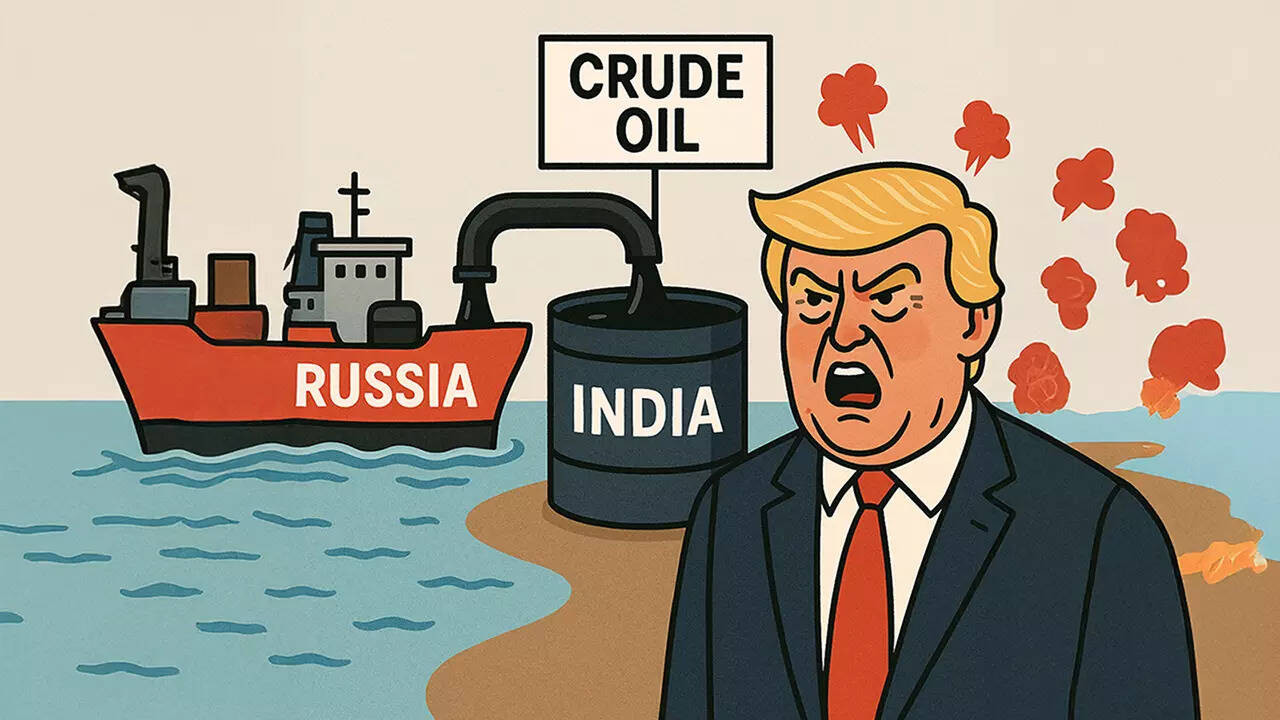India faces potential US penalties due to its continued trade relations with Russia, specifically regarding oil and defence equipment purchases. Despite international pressure and sanctions, India has significantly increased its reliance on discounted Russian oil, now comprising a substantial portion of its imports.
India’s Russian Oil Embrace: Navigating a Complex Geopolitical Landscape
The world of international relations rarely offers simple answers. Take, for instance, India’s deepening energy ties with Russia. What started as a trickle has become a steady flow, raising eyebrows in Washington and reshaping global energy dynamics. But why is India buying so much Russian oil, and what are the potential ramifications?
For India, the appeal is straightforward: affordability. With its rapidly growing economy, India needs vast amounts of energy to fuel its industries and power its cities. Discounted Russian crude, a consequence of Western sanctions following the Ukraine conflict, presents an irresistible opportunity to secure vital resources at competitive prices. This allows India to manage its import costs effectively and shield its consumers from the full brunt of volatile global oil prices.

But it’s not just about the price tag. India has consistently maintained a position of strategic autonomy in its foreign policy. While committed to a strong relationship with the United States, New Delhi also values its long-standing ties with Moscow. This balancing act requires careful navigation, especially when interests diverge, as they do on the issue of Russian energy.
The US Perspective: A Delicate Dance
From Washington’s perspective, India’s continued purchase of Russian oil is undoubtedly a source of frustration. The US has been leading the charge in imposing sanctions on Russia to cripple its ability to finance the war in Ukraine. Every barrel of Russian oil purchased by India, or any other country, provides revenue that could potentially support the Russian war machine.
However, the US also recognizes the complexities of India’s situation. A sudden halt to Russian oil imports could destabilize India’s economy, potentially leading to social unrest and hindering its own economic growth. Moreover, pushing India too hard could alienate a key strategic partner in the Indo-Pacific region, a region crucial to countering China’s growing influence.
Therefore, the US approach has been one of subtle pressure and diplomatic persuasion, rather than outright threats. Washington prefers to focus on encouraging India to diversify its energy sources and to adhere to the G7’s price cap on Russian oil, a mechanism designed to limit Russia’s oil revenues while ensuring a continued supply to the global market.
How Much Crude Oil is India Importing?
The numbers tell a compelling story. Prior to the Ukraine conflict, Russia was a relatively minor oil supplier to India. Now, it’s consistently among the top sources, sometimes even surpassing traditional suppliers like Saudi Arabia and Iraq. Recent data suggests that India’s intake of Russian oil has increased dramatically in recent months, making it a significant buyer on the global market.
This surge in Russian oil imports hasn’t gone unnoticed. While India maintains that its actions are driven by economic necessity and its own national interests, the scale of its dependence on Russian energy raises questions about the long-term sustainability and geopolitical implications of this strategy.
Will US Penalties Deter India’s Oil Imports?
The question of potential US penalties looms large. While Washington has so far refrained from imposing direct sanctions on India for its Russian oil purchases, the possibility remains on the table. The US could, for example, target Indian companies involved in transporting or financing Russian oil, potentially disrupting India’s supply chains.
However, such a move would carry significant risks. It could damage US-India relations, undermine efforts to counter China, and potentially lead to unintended consequences in the global energy market. A more likely scenario is that the US will continue to rely on diplomatic pressure and indirect measures to encourage India to reduce its reliance on Russian energy.

The Future of India’s Energy Policy
India finds itself at a crucial juncture. While the immediate benefits of discounted Russian oil are undeniable, the long-term implications of relying heavily on a single, geopolitically sensitive source of energy are considerable. Diversifying its energy portfolio, investing in renewable energy sources, and strengthening its relationships with other oil-producing nations will be essential for India’s energy security and its standing on the global stage.
The path forward is not without its challenges. Balancing economic needs with geopolitical realities requires deft diplomacy and a clear understanding of the evolving global landscape. But as a rising power with a growing economy, India has the capacity to navigate these complexities and chart its own course toward a secure and sustainable energy future. The choices it makes in the coming years will have far-reaching consequences, not just for India itself, but for the entire world.







